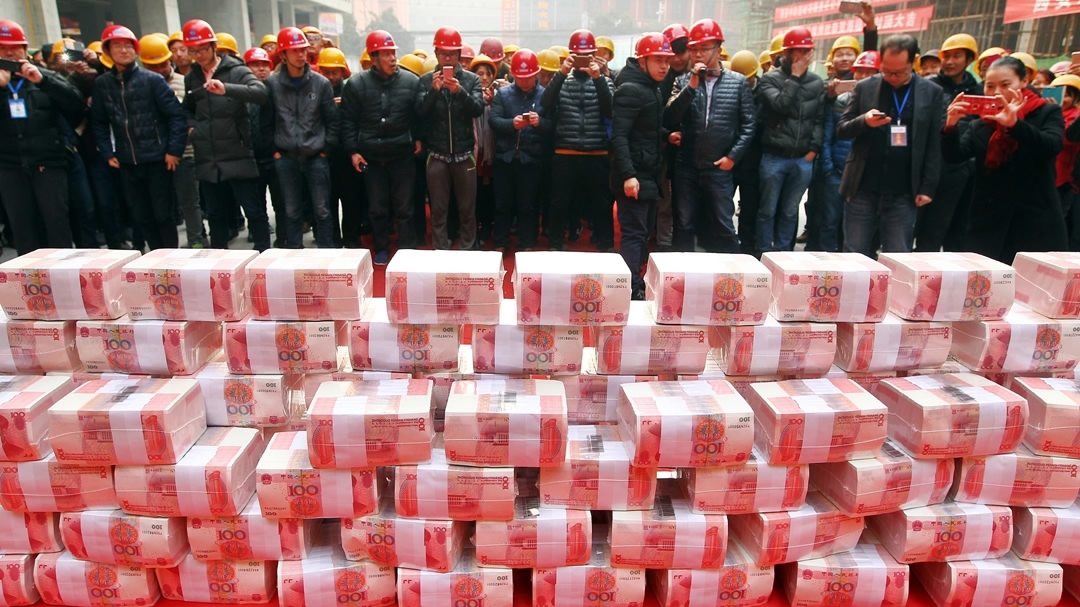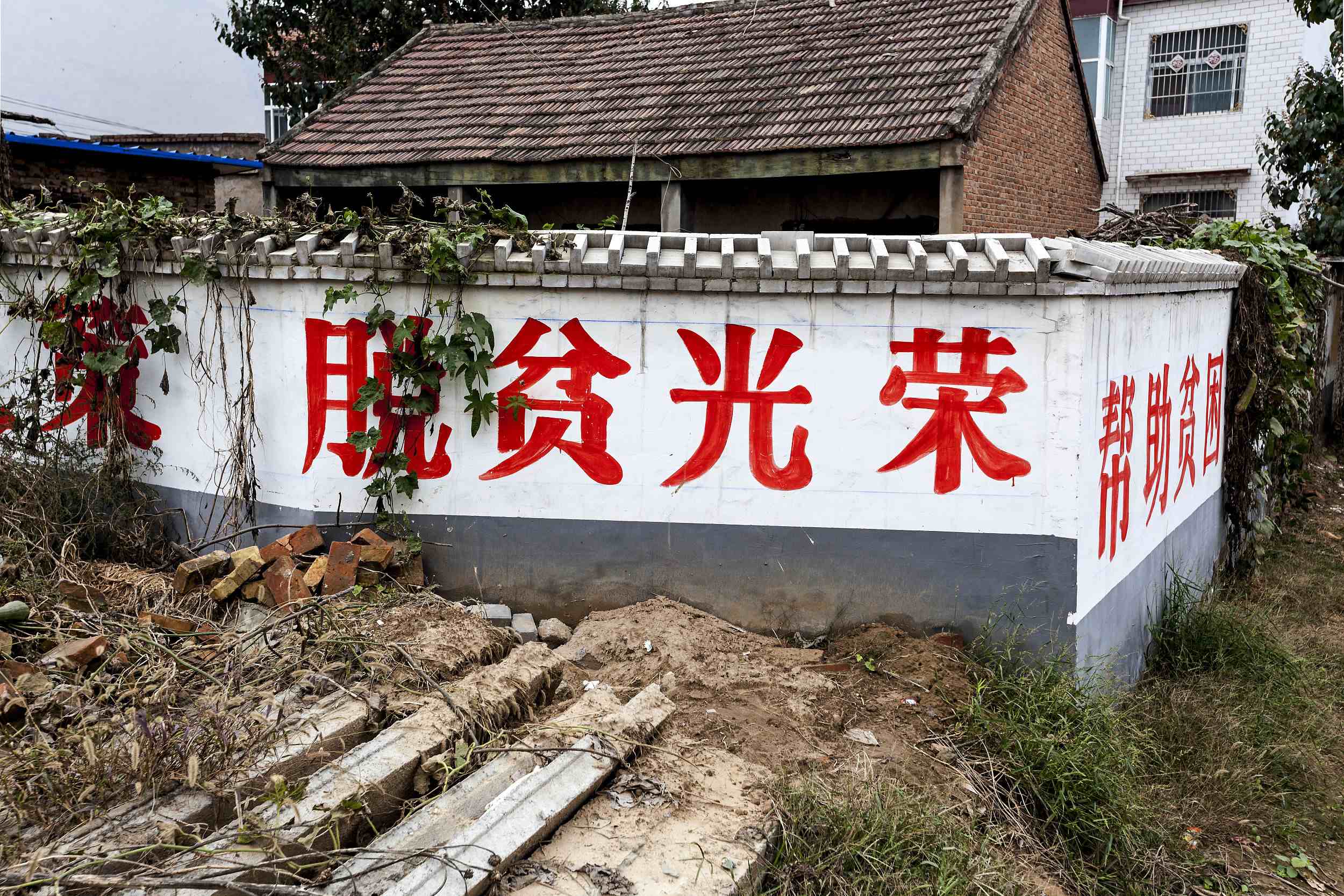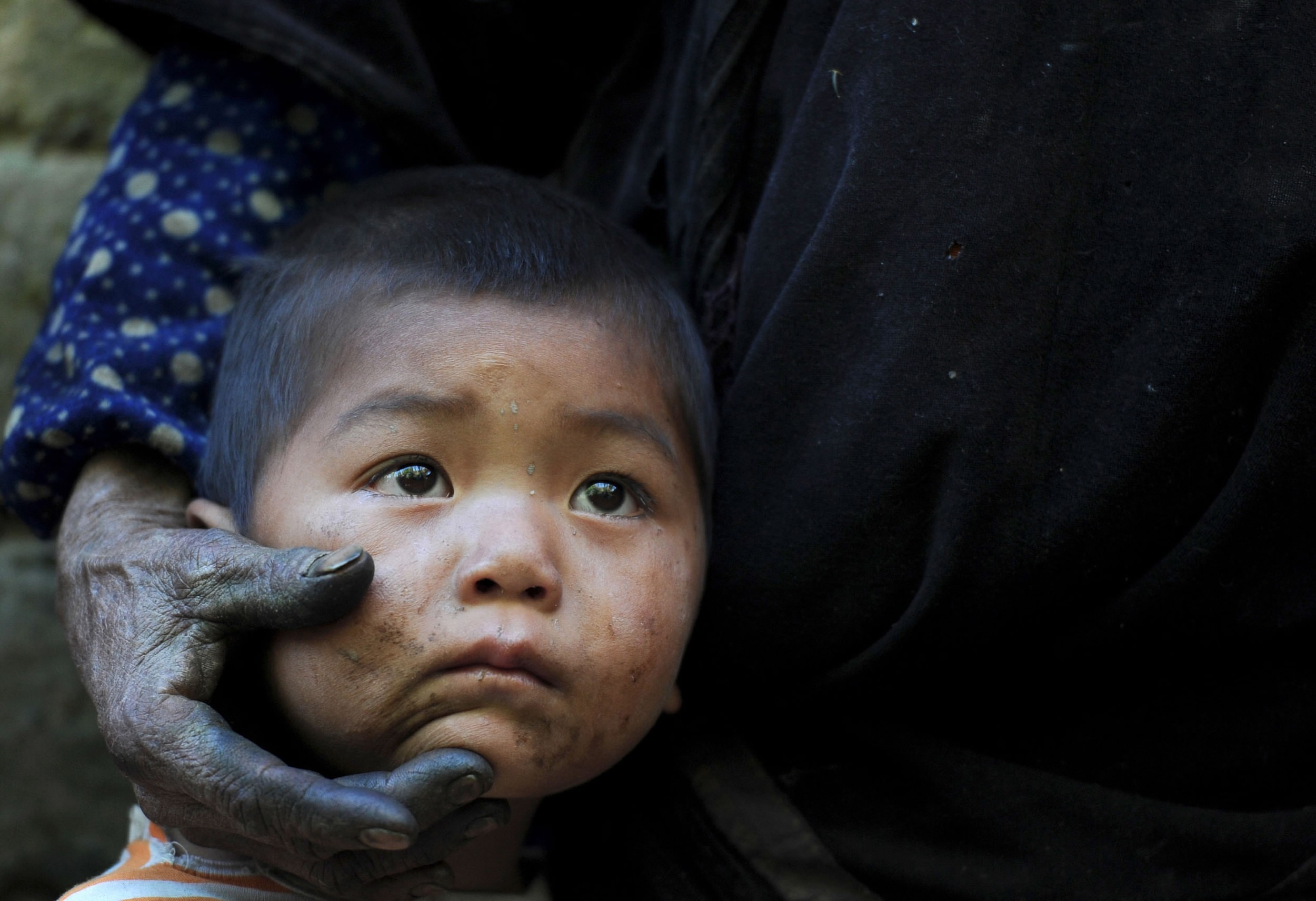
Business
15:26, 19-Dec-2017
Taxing task: The final hurdles for China’s poverty alleviation
CGTN Yang Di

China has long cemented its status as the world’s second largest economy, but tens of millions of its people still struggle to keep their mouths full and bodies warm.
Despite making unprecedented progress in lifting people out of poverty, eliminating it altogether remains a key challenge for the Communist Party of China. Official data show that by the end of 2016, 43.3 million people were living below China’s poverty line of 2.19 US dollars a day in rural areas, down from almost 100 million people five years earlier. The cost of meeting the challenge by 2020, earmarked as a centenary goal by central policymakers, is expected to run high – untangling the ties keeping the final portion of the population in poverty will be even more complicated, admits Liu Yongfu, director of China’s poverty alleviation office.
Budget limitations are an obvious drag, and even with an increased pool of financial aid, inefficiencies and graft continue to affect how resources are allocated to China’s poorest people.
The battle against poverty is “formidable,” said Chinese President Xi Jinping during the 19th CPC National Congress this October. To win it, China “should mobilize the energies of the whole Party, the whole country, and the whole society.”
Clouded mind, greased palms and loose ends

The central government poverty budget has more than doubled over the past five years, from 39.4 billion yuan (about 5.9 billion US dollars) in 2013 to 89.1 billion yuan (13.4 billion US dollars) in 2017. While tens of billions more have been added in the form of local government bonds, the money has not always been put to good use.
Poverty funding worth several billion yuan was instead misplaced and embezzled in 2016, according to China’s National Audit Office.
An examination by the office of how 1,216 counties nationwide allocated their poverty alleviation budgets found that 2.67 billion yuan (400 million US dollars) had been used in a “problematic” way.
Some 1.95 billion yuan (295 million US dollars) were found to be "sleeping" in local government accounts due to a lack of feasible investment projects. Fraud had cost another 380 million yuan (57.4 million US dollars), while another 330 million yuan (49.9 million US dollars) were effectively wasted due to poor planning.
"In some areas, official poverty alleviation projects were designed too unscientifically for efficient delivery, and the general public were not informed about how the expenses were made," Liu Yongfu said in a departmental work report to the 19th CPC National Congress.
A poll of 162 CPC county chiefs of impoverished areas last December, conducted by the Party School of the Central Committee of the CPC, found that funding shortages were the most pressing issue affecting poverty alleviation.
Corruption remains a pressing problem. Government data show 1,892 officials were investigated nationwide in 2016 for misconduct related to poverty alleviation, up 102.8 percent compared to the previous year. According to Xinhua, southeast China’s Jiangxi Province alone has seen more than 5,700 cases exposed in 2017, with 7,772 local officials disciplined for wrongdoings related to relieving poverty.
A study by the Chinese Academy of Social Sciences (CASS) in April this year identified certain holes in the system that set back fair and efficient delivery of financial support.
The distribution mechanism is being upgraded too slowly to manage the diverse fund sources, the paper found. With funding coming from bank loans, company seed funds and NGO donations, each stream of aid works separately along parallel lines, delivering different yields and requiring individual management.
CASS also found that poor supervision is another factor. Poor villagers with inadequate education, little access to information and legal knowledge are expected to supervise how funding is applied, begging for stronger intervention from higher-level supervisory bodies.

VCG Photo
VCG Photo
Faced with such problems, central policymakers have acted to optimize the system.
The establishment of a digital big data platform is underway, according to Liu Yongfu, with the purpose of replacing bureaucracy with an open information-sharing system, relieving the burden on local officials so they can focus on the task at hand of tackling poverty.
Necessary performance evaluations will be conducted by either officers from different provinces or third parties, with the aim of preventing collusion.
The Central Commission for Discipline Inspection has announced a campaign targeting corruption and malpractice in poverty alleviation projects, which will last from 2018 to 2020.
"Seeing poor people and poor areas enter the moderately prosperous society together with the rest of the country is a solemn promise made by our Party," CPC General Secretary Xi Jinping said in his address to the National Party Congress.
Calling poverty alleviation a "formidable" task, Xi has recognized the social and political magnitude of the issue, promising all-out efforts towards solving the problem once and for all.

SITEMAP
Copyright © 2018 CGTN. Beijing ICP prepared NO.16065310-3
Copyright © 2018 CGTN. Beijing ICP prepared NO.16065310-3